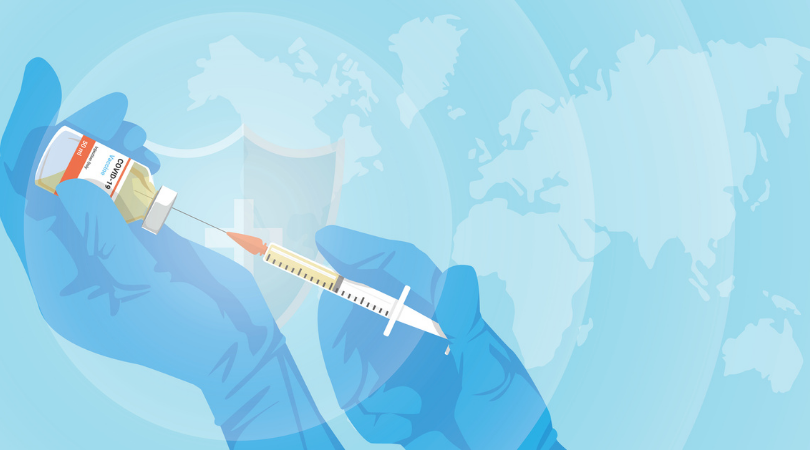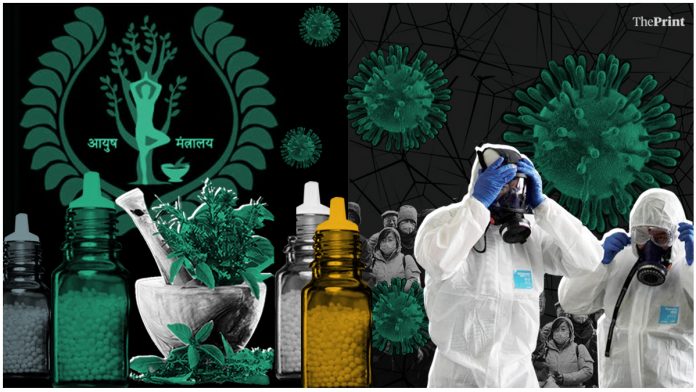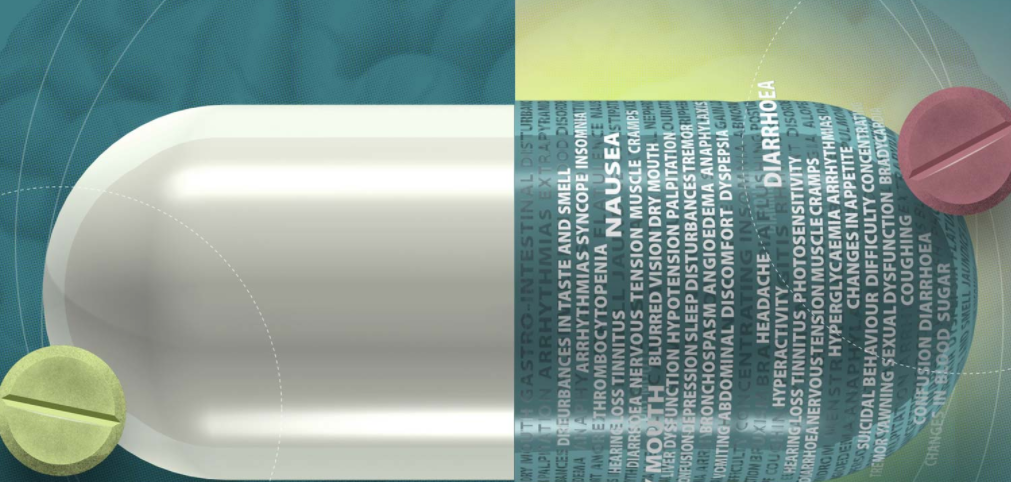Placebo and Nocebo effects in Healthcare
.
COVID-19 Vaccines and the Nocebo Effect
Ever since Covid-19 vaccines were approved in December 2020 (if not before) public opinion has been strongly polarised between supporters of the life-saving drug (which include the vast majority of the medical and scientific communities) and skeptics.
While most of the skeptical positions regarding the need or efficacy of the vaccine can be traced back to a misunderstanding of epidemiology and public health, misinformation, or even political bias, the conversation surrounding the vaccine’s side effects is more complex.
For one, vaccines actually have officially recognised and common side effects. These are the now-ubiquitous headaches, fever, body aches, nausea, and general tiredness that we’ve come to know. However, as vaccination rates grow beyond high levels (>70%) more cases of rare severe side effects (such as an allergic reaction) will emerge. This is not because vaccines are more dangerous than initially estimated, or because of some nefarious governmental conspiracy, but because of a “paradox effect” where the absolute number of severe side effects increases because of the growth of the vaccinated population. In this case, correlation really is not a causation.
This issue, especially when it encounters a hypercharged media environment, can cause quite a headache for governments who are trying to anticipate public anxiety and encourage people to take the vaccine. This was the case last March when viral-vector-based vaccines, like the Oxford-AstraZeneca and Johnson & Johnson vaccine, became temporarily associated with rare, but dangerous and even fatal blood clots. Countries were too fast to react, with some completely banning these vaccines, or restricting them to the 60+ population. Further investigation showed that the cases of blood clots were in fact consistent with rates in the general population, and the vaccination campaign has resumed.
However, the structural growth of side effects (whether they be real or only correlated) is a major factor contributing to vaccine hesitancy worldwide. What’s worse is that social apprehension surrounding vaccination may even be inducing adverse effects unrelated to the chemical properties of the drug. For example, the following phenomenon occurred in vaccination centers in the US: cases of “fainting, excessive sweating, nausea, and vomiting” were reported in vaccination centers across the country, after individuals received their dose of the Johnson & Johnson vaccine. The CDC noted that for most individuals, fainting, nausea, etc. were indeed anxiety-induced events.
Why do individuals experience such effects after receiving the new COVID-19 vaccine? The answer lies in the phenomena known as the placebo and nocebo effects.
What is a Placebo or Nocebo Effect?
The previously mentioned (indirect) effects of the COVID-19 vaccine on individuals, causing dizziness, fainting, nausea, etc. is a clear example of an altered nocebo effect. Literature defines the classic nocebo as “a substance without medical effects but which worsens the health status of the person taking it by the negative beliefs and expectations of the patient”.
For example, as proven in many experiments, patients are given a sugar pill as a treatment for a certain condition and are told to expect side effects such as nausea, drowsiness, or pain. Although they are merely given a sugar pill, patients still reported experiencing such side effects. It’s easy to understand how powerful this effect can be for a treatment like the COVID-19 vaccine, which has been the source of daily discussions and media coverage for the better part of a year.
On the other hand, a placebo is the exact opposite of a nocebo. Defined as “a substance without medical effects, which benefits the health status because of the patient’s belief that the substance is effective”. Like a nocebo, a placebo sees patients experiencing a clear improvement of symptoms and general advancement of wellbeing.
In conclusion, whether interlinked with positive or negative health outcomes or experiences for individuals, both effects are the result of psychological and physical reactions to non-active ingredients and most often occur due to expectations, conditioning, idea framing, and individual psychological state.
Clinical Management and Reversing (or Fortifying) of Both Effects
The question remains as to how both effects can be clinically managed, or if they even should. Recent research and experiments, especially regarding the nocebo effect, highlight the importance of managing patient expectations, providing a comprehensive overview of the treatment plan, clearly discussing possible side effects as well as double-checking with each patient on an individual level if all parameters associated with the treatment are understood and accepted.
Additionally, the method of “counterconditioning” has also been proven to be highly effective in the case of nocebo effects. By “turning previously negative learned associations into positive ones”, nocebo effects can be drastically reduced and even converted into a (sometimes) useful placebo effect.
By definition, a nocebo effect is always undesirable as it produces negative effects in a patient. It is not always possible to completely reduce or prevent nocebo effects, however, they can be countered by combating false rumors of unfounded side effects, and improving effective communication between doctor and patient, etc.
On the other hand, placebos pose a slightly different type of problem as they produce effects that to a certain extent can be beneficial to patients. In fact, a placebo effect may even be desirable if it occurs within the context of an appropriate treatment since it reinforces the positive outcome. On the other hand, a placebo is dangerous when it occurs within the context of inappropriate treatment and it only provides the illusion of an improvement convincing the patient to insist on an ineffective or even dangerous therapy and to ignore better ones.
Placebos therefore should be carefully examined and managed, following a “Minimize, Maximize, and Personalize” approach. Research indicates that during clinical trials, the placebo effect should be minimized as far as possible to correctly evaluate the efficacy and success rates of a drug still in the clinical research phase. However, once a drug is approved, physicians should aim to maximize placebo effects by managing patient expectations. This can be optimally achieved by personalizing care to a patient’s genetic predispositions, personal preferences, personality, and medical history.
In sum, both effects are very common globally, and the COVID-19 pandemic has exacerbated them tremendously. In this period of public health crisis, policymakers face the double task of suppressing nocebo effects which undermine national vaccination campaigns while at the same time also contrasting placebo effects associated with alternative and unproven Covid treatments (such as hydroxychloroquine, ivermectin, or homeopathic remedies) which may even be dangerous to individuals or prevent them from seeking proven medical help.
In both cases, the only instrument is transparent and coherent communication especially from physicians which aims at educating the public on these phenomena. Now more than ever public relations play a fundamental role that directly affects our wellbeing, determining even whether we may get a headache or not.
Sources
Information and Data:
https://www.frontiersin.org/articles/10.3389/fphar.2020.581840/full
https://clinicaltrials.gov/ct2/show/NCT04325893
https://jamanetwork.com/journals/jama/fullarticle/2774382
https://pubmed.ncbi.nlm.nih.gov/23449306/
https://pubmed.ncbi.nlm.nih.gov/29119079/
https://www.healthline.com/health/placebo-effect#the-psychology
https://www.healthline.com/health/placebo-effect#real-examples
https://www.healthline.com/health/placebo-effect#what-we-dont-know
https://www.healthline.com/health/placebo-effect#takeaway
https://www.webmd.com/pain-management/what-is-the-placebo-effect
https://www.healthline.com/health/placebo-effect
https://www.frontiersin.org/articles/10.3389/fpsyt.2020.00801/full
https://www.karger.com/Article/FullText/490354
https://www.webmd.com/balance/features/is-the-nocebo-effect-hurting-your-health
https://www.nejm.org/doi/pdf/10.1056/NEJMra1907805
https://www.nejm.org/doi/full/10.1056/NEJMra1907805
https://pubmed.ncbi.nlm.nih.gov/24909245/
https://www.foxnews.com/health/anxiety-fainting-johnson-johnson-covid-19-vaccination-cdc-warns
https://www.nature.com/articles/d41586-020-03441-8
https://jamanetwork.com/journals/jama-health-forum/fullarticle/2779081
https://www.kent.ac.uk/news/science/28135/explainer-why-do-covid-19-vaccines-cause-side-effects
https://www.linkedin.com/pulse/35-vaccinations-second-nocebo-effect-rich-parker
You may also like
Warning: Undefined variable $content in /var/www/sdomains/nexatestwp.com/infomineo.nexatestwp.com/public_html/wp-content/themes/infomineo/single.php on line 235
Warning: Undefined variable $content in /var/www/sdomains/nexatestwp.com/infomineo.nexatestwp.com/public_html/wp-content/themes/infomineo/single.php on line 235
Warning: Undefined variable $content in /var/www/sdomains/nexatestwp.com/infomineo.nexatestwp.com/public_html/wp-content/themes/infomineo/single.php on line 235
Warning: Undefined variable $content in /var/www/sdomains/nexatestwp.com/infomineo.nexatestwp.com/public_html/wp-content/themes/infomineo/single.php on line 235
Warning: Undefined variable $content in /var/www/sdomains/nexatestwp.com/infomineo.nexatestwp.com/public_html/wp-content/themes/infomineo/single.php on line 235
Warning: Undefined variable $content in /var/www/sdomains/nexatestwp.com/infomineo.nexatestwp.com/public_html/wp-content/themes/infomineo/single.php on line 235










